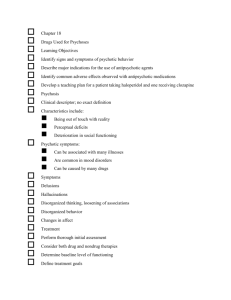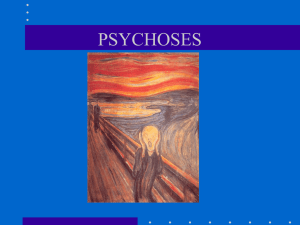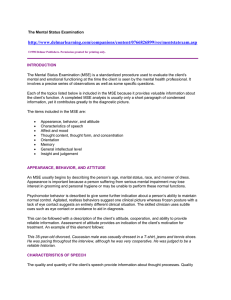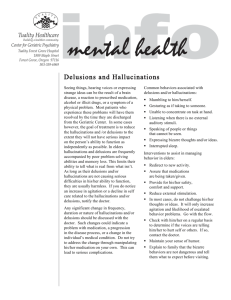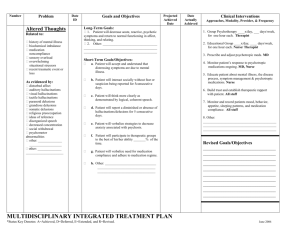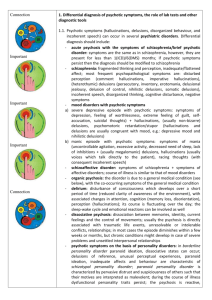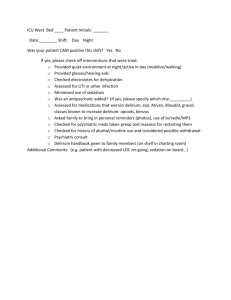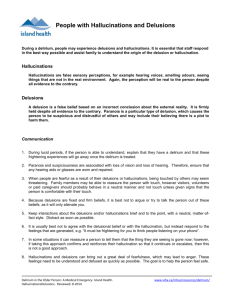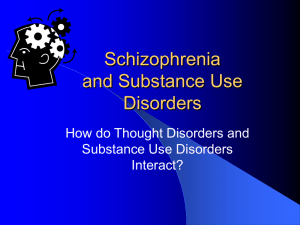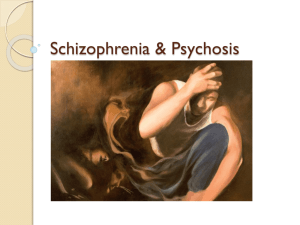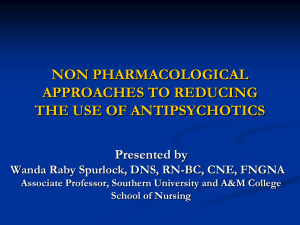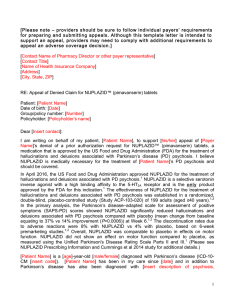Psychosis
advertisement
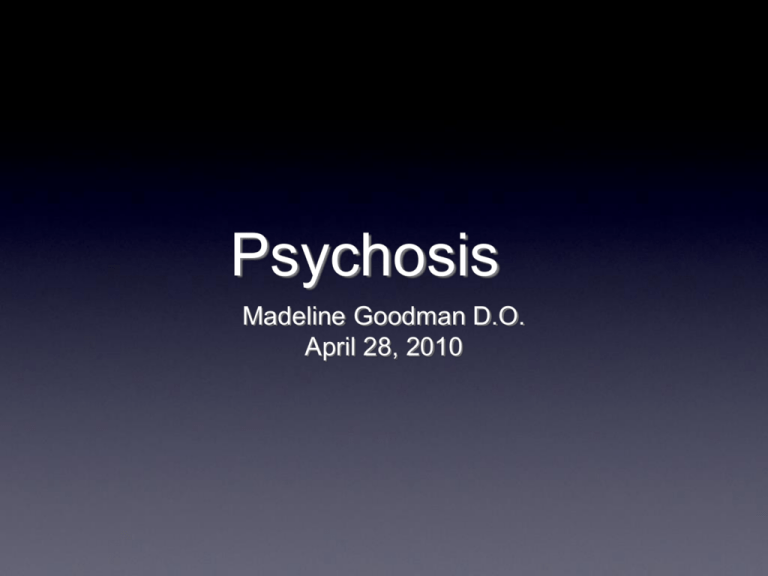
Psychosis Madeline Goodman D.O. April 28, 2010 • • • • Common in both the medical and psychiatric settings First break is poorly understood 3-5% of the population Responds well to treatment • Disturbance in perception of realty as evidenced by hallucinations, delusions and thought disorganization (Up to Date 2007) • • • • • Auditory Visual Tactile Olfactory Gustatory • Primary Psychotic Disorder • • Schizophrenia Schizoaffective Disorder • Primarily Medical Disorders • • • Delirium Neoplasm of the Central Nervous System ETOH Withdrawal • • tactile being the most common bugs crawling on their skin • • • Fixed False Belief that is not typical of patients faith, culture or family. Cultural Religious • • • • • • • Looseness of Association Nonsensical speech Bizarre Behavior High level of functional impairment High risk of agitated or aggressive behavior Difficult to obtain coherent history Unable to consent to treatment • • • • • • • Acute state of anxiety Heightened emotional arousal Increased motor activity Commonly seen in both psychiatric and medical conditions Patients awareness External factors Treat both anxiety and psychosis • • • • Acts or threats of violence Common in acute psychotic states Persecutory delusions, thought disorganization, poor impulse control Never challenge the delusions • • • • Severe Chronic Social, occupational and scholastic deterioration Prevalence rate 1.1% (NIMH) • • • • • Urban Living Social Disadvantage Childhood Trauma Poverty Genetic Links • Twin and adoption studies have shown high rate of heritability • • • • • Add to normal experience Hallucinations Delusions Thought disorganization Highly correlated to Hospital admission • • • • • • Take away from normal experience Loss of motivation Anhedonia Alogic Asociality Moderately correlated with functional impairment • Loss of basic domains of intellectual functioning • • • • Memory Attention Verbal processing Executive Functioning • • • • Psychotherapy Group Home Living Community Teams Antipsychotic Medication • • • • Atypical vs. Typical agents Metabolic Syndromes Side effects may decrease compliance Long acting preparations may be better • • • Maine Medical Center Peer Program Early treatment with antipsychotic medication can decrease the severity of the illness Education • Teaching children who might be predisposed to avoid street drugs • • • • • • • Discreet sustained period of elevated or irritable mood Decreased need for sleep Increased in goal directed activities Grandiosity Rapid/pressured speech Poor Judgment Engaging in high risk behaviors • • • • Antipsychotics Benzodiazepines Anti-convulsants Electroconvuslive Therapy • Lithium Carbonate • • BUN, Creatinine, GFR, TSH Lithium levels every three months in the first year along with BUN and Creatinine, then every six months. TSH should be evaluated yearly • • • • Liver Function CBC Can decrease Platlets V.A. level every three months for the first year and then every six months. Recheck LFT’s and CBC every six months • • • Can slow down mania Help with sleep Decrease anxiety • • • Mood Congruent Nihilistic thinking Responds best to combination therapy • • • Antidepressant Plus Antipsychotic Psychotherapy Benzodiazepine • • • Diagnostic criteria for Schizophrenia and Mood Disorder Both sets of symptoms prominent in the course of the illness Two week period free from prominent mood symptoms • • • • • • 40% experience psychotic symptoms Behavioral disturbance associated with psychosis Lewy Body Type associated visual hallucinations Treatment with antipsychotics Black Box Warning! Increased mortality in this population • Delirium • • • • • • Acute change in mental status This is a true medical emergency Inability to focus and maintain attention Disorientation Memory impairment Language disturbance • • • • Medical conditions Medications ETOH Withdrawal Substance Abuse • • Non-bizarre delusions Does not respond to antipsychotic medication • • • Believe that bugs are infesting their bodies Multiple visits to PCP, dermotologist Can respond to low dose antipsychotic • • • • Many causes of psychosis Can be challenging to diagnose but in most instances is highly treatable Difficulty arises when patients become non-compliant Delirium IS a medical emergency! • Lets Take a 10 minute break!
